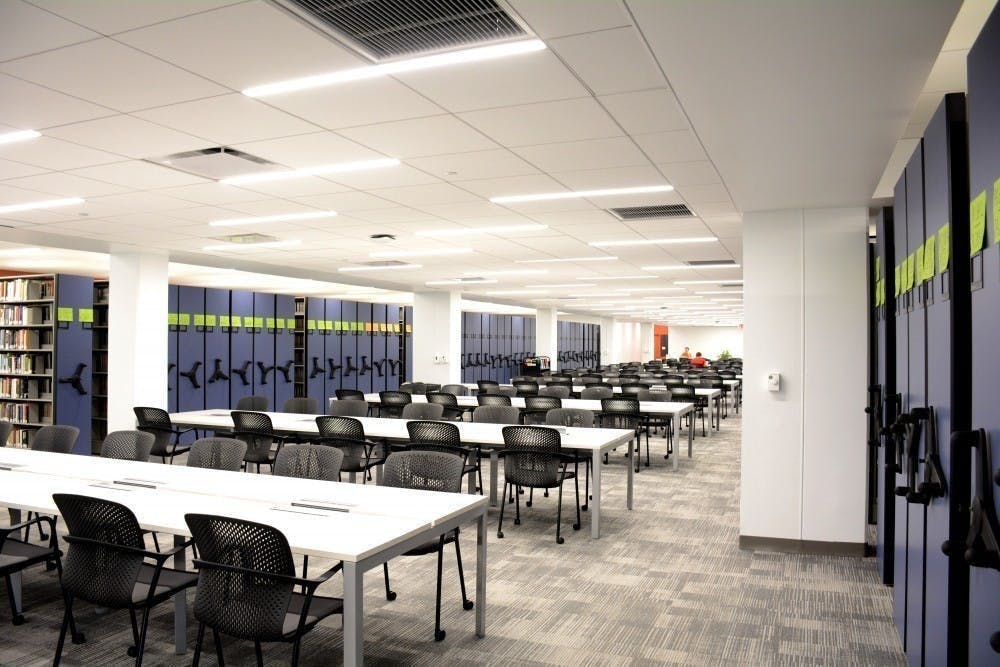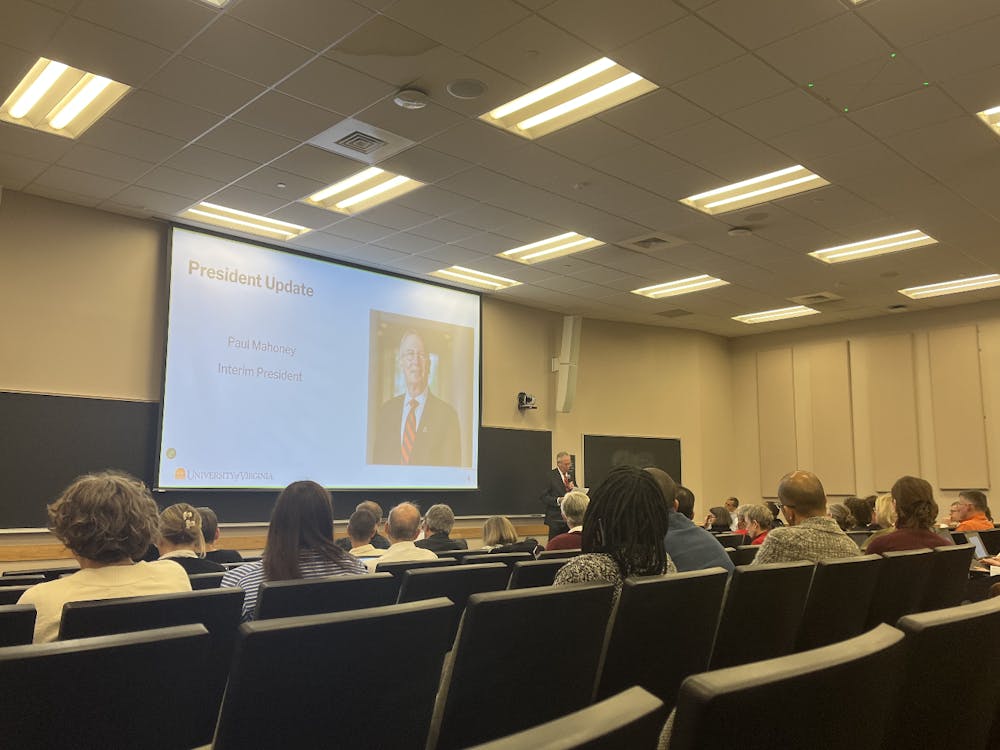Lea en español
With all final exams to be held virtually this semester, some professors are preparing to use anti-cheating software and are trying to make unique exam questions to prevent possible cheating attempts. The last day of classes is Nov. 24 and final exams will take place virtually from Nov. 30 to Dec. 11.
After many professors administered virtual midterm exams in October, University faculty reported experiencing challenges with online proctoring services, catering to students’ unique circumstances and not being able to confirm suspicions of cheating. Some professors even canceled midterm exams outright.
Ryan Keane, chair of the Honor Committee and fourth-year Batten student, said that he has heard from professors who are suspicious of students possibly cheating on midterms, but professors are unable to determine what students are viewing on their screens during exams.
Keane said that professors have been issuing more complaints to the committee about online midterms. Due to Honor system confidentiality, however, he was unable to comment on whether or not the Honor Committee has heard more cases of cheating with online learning.
“People are aware that cheating is more rampant [online],” Keane said.
With finals season approaching, Keane said that there’s a “good chance of an influx” of Honor cases occurring, but said the Honor Committee is prepared for a possible heightened caseload.
When classes transitioned online last spring, Education Prof. Michael Higgins used LockDown Browser to thwart cheating attempts on exams throughout the spring semester. The software prevents students from minimizing their screens or navigating to other websites while taking a test.
This semester, however, students were unable to download LockDown Browser on their computers, and the University told Higgins that they do not support the software. Wes Hester, deputy University spokesperson and director of media relations, confirmed in an email to The Cavalier Daily that Technology Services has never encouraged the usage of LockDown Browser, but individual professors could have used the program if they so desired.
Instead, Higgins’ students now take their exams through Canvas — a learning management system similar to the University’s Collab site, used by the School of Education — and turn their webcams on so he can watch them through Zoom. On Canvas, instructors are able to lockdown browsers while administering an exam to prevent students from opening up other tabs or documents with answers or notes.
Despite these attempts to prevent Honor violations, Higgins said there’s no way to prove with certainty if a student is cheating. Higgins is able to see students’ eye movements while watching them through Zoom and see how many times they go offline or look at certain exam questions on Canvas, but said that proving students are cheating is a “daunting task.”
Higgins also said that he saw a noticeable increase in the students’ average grades from a recent exam compared to grades in past semesters.
“I would like to give every student the benefit of the doubt, but when you see massive variations from test to test it makes you wonder,” Higgins said.
Administering online midterms also posed logistical challenges, especially for professors who teach hundreds of students. Some professors — like Asst. Prof. Mark Floryan and his computer science colleagues — canceled midterm exams outright. In an email to The Cavalier Daily, Floryan said he canceled midterms for his Program and Data Representation course because he didn’t have enough time to build and test new tools to make exam questions unique.
Now with enough time to make exam changes, Floryan said that he plans on holding a final exam this semester. In efforts to combat cheating attempts, Floryan and his colleagues are designing tools to generate hundreds of versions of each final exam question to make each exam unique, establishing time limits and allowing students to use their textbooks and notes to prevent unfair advantages.
Floryan said that he believes most of the Computer Science faculty agree “to not put too much effort on policing students” with anti-cheating software and other high cost measures. Since students wouldn’t have access to their notes during in-person exams, he said in-person finals are better than online exams for measuring students’ knowledge.
“There really isn't any way to reproduce that environment online and I am not willing to use
online proctors or other invasive strategies like that on my students,” Floryan said. “So, the biggest issue is that I don't really have any assessments that I feel fully measure a student's learning, but I am still thinking through this.”
Like Floryan, Economics Prof. Kenneth Elzinga said in an email to The Cavalier Daily that he prefers in-person proctored exams to virtual exams in his Introduction to Microeconomics course. While all students would have the same experience taking exams in a classroom, students often have more disruptions with online midterms. Managing students’ individual circumstances — such as accommodating those who have poor internet connection — occupied “an extraordinary amount of time” for Elzinga, his head teaching assistant and his administrative assistant.
“For instance, a student working at home might experience a power-outage that a student on Grounds did not have,” Elzinga said. “This would not happen if all students were taking the exam (on paper) in the same room. In a class of 1,300, the number of students who have unique testing circumstances is much higher than it would be for other classes.”
Elzinga used Proctorio — a software designed to recognize academic dishonesty in online exams — for his midterm exams and plans to use the software again for finals. After enabling the Google Chrome extension, students are unable to access other websites while taking exams and their webcams track their facial movements to determine if they could be cheating. Though some students had difficulties using the software, Elzinga said the software “worked smoothly” overall. Elzinga didn’t notice an increase in Honor violations on his classes’ midterm exams compared to previous semesters.
According to Hester, Proctorio is not a program that is centrally licensed, provided by or supported by the University’s Technology Services — however, certain schools or departments can use the program as they see fit.
Though cheating is a concern for some faculty, professors continue to rely on the University’s nearly 180 year-old Honor code, which all students sign pledging not to “lie, cheat or steal.”
“While I value the use of Proctorio, at Mr. Jefferson’s university I don’t think it is terribly important because I continue to believe that ‘honor’ matters to U.Va. students and I expect all of my students to conduct themselves accordingly,” Elzinga said.







